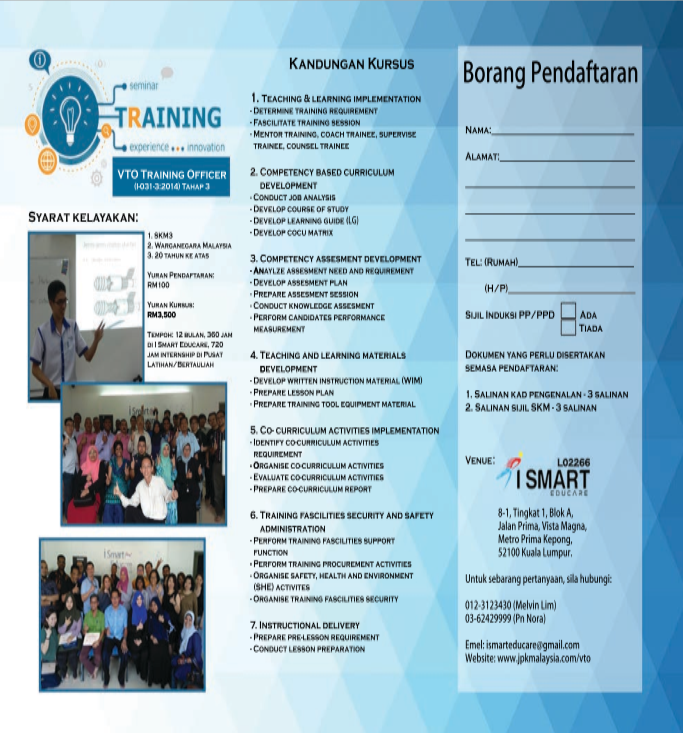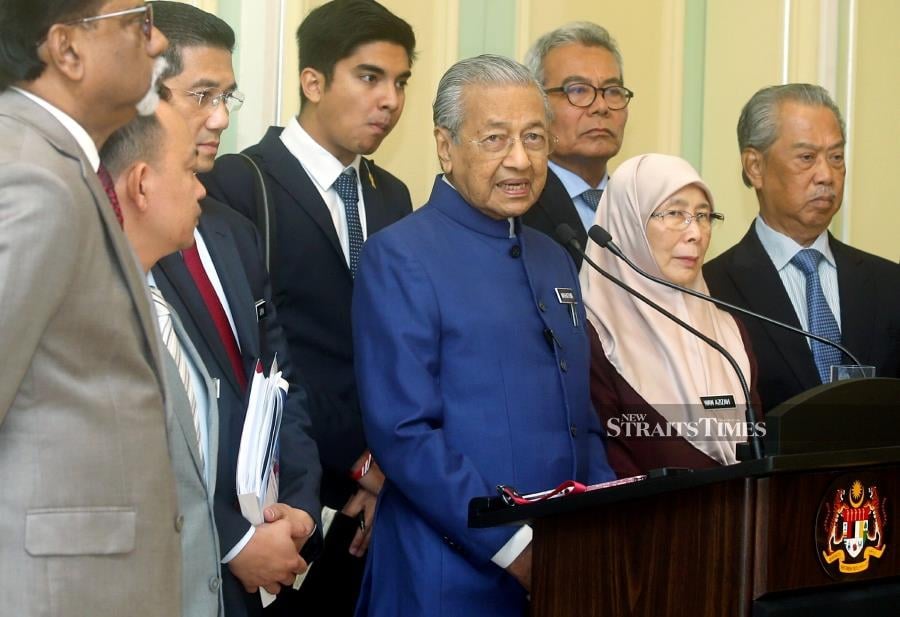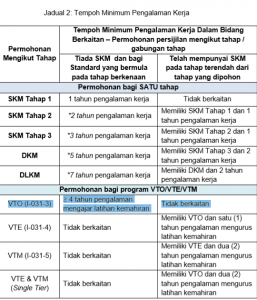Cabaran Pentauliahan Online (PB/Program)
Sebelum kita bincang cabarannya, mari kita lihat apa itu Pentauliahan Online (PB/Program) secara ringkasnya.
Ia adalah satu proses di mana Jabatan Pembangunan Kemahiran (JPK) membuat lawatan pentauliahan, tak kira untuk:
- Permohonan Pusat Bertauliah Baru (serta program) ATAU
- Pembaharuan Pusat Bertauliah (sedia ada, beserta program
Untuk kategori:
- Pusat Bertauliah SLaPB – Pusat Latihan Kemahiran Awam @ Swasta ATAU
- Pusat dan Syarikat SLDN
Makluman rasmi yang diisu oleh JPK pada 5 Februari 2021 adalah berkaitan Aktiviti Latihan Kemahiran Dan Pentauliahan Program Bertauliah Selaras Pengumuman Arahan Perintah Kawalan Pergerakan (PKP) Oleh YAB. Perdana Menteri Bermula 13 Januari 2021 Dilanjutkan Sehingga 18 Februari 2021.
Dalam pemakluman berkaitan;
5. Aktiviti Pentauliahan Program Bertauliah bagi maksud Lawatan Pentauliahan & Verifikasi secara bersemuka dan dalam talian “On-Line” sepanjang tempoh Perintah Kawalan Pergerakan (PKP), Perintah Kawalan Pergerakan Bersyarat (PKPB) dan Perintah Kawalan Pergerakan Pemulihan (PKPP) adalah DIBENARKAN namun tertakluk kepada Garis Panduan dan Operasi Standard JPK yang sedang berkuatkuasa.
Seperti juga pembelajaran online, pentauliahan online juga ada cabarannya serta cara untuk mengatasinya.
Berikut adalah perkongsian pengalaman yang dilalui oleh Pusat Bertauliah I Smart Educare, L02266 dalam lawatan pentauliahan pembaharuan programnya yang telah dilakukan secara online pada 9hb Februari 2021.
Untuk makluman anda, I Smart Educare adalah salah sebuah Pusat Bertauliah JPK yang aktif menawarkan program Vocational Training Operation (VTO, I-031-3:2014) (dikenali sebagai Vocational Training Officer sebelum tahun 2014, I-031-3) sejak 2011.
Pengurus Pusat Bertauliahya, En Melvin Lim memasarkan program VTO ini sejak pengenalan program VTO pada tahun 2004. Dianggarkan ribuan pemegang sijil VTO adalah hasil pemasaran & penawaran kursus VTO oleh Melvin Lim kepada pelanggannya, secara langsung melalui I Smart Educare atau tidak langsung (melalui kerjasama dengan Pusat Bertauliah JPK yang lain – juga menawarkan VTO).
Adakah anda salah seorang daripadanya? 😀

Cabaran kepada – panel & personel PB
Antara cabaran pentauliahan online (berdasarkan pengalaman sendiri – kisah benar tau!)
1. Capaian kepada kemudahan internet
Sambungan ke internet adalah aspek yang paling penting dalam pentauliahan dalam talian ini. Panel & semua personel PB perlu membeli mengakses dalam talian mereka atau membayar tambahan untuk menaik taraf ke internet berkelajuan tinggi. Ini mungkin menyukarkan panel ataupun personel yang kurang berkemampuan (sebab bukan semua dapat balik ke Pusat Bertauliah dan perlu lakukannya di rumah sendiri) untuk berkomunikasi secara berkesan kerana kekurangan kemudahan akses internet berkelajuan tinggi.
2. Suasana pentauliahan yang tidak kondusif
Bagi personel atau panel yang kurang berkemampuan pasti menghadapi masalah ini apabila melaksanakan tugasan ini dari rumah. Masalah ini meliputi suasana persekitaran yang bising, tempat yang sempit serta tiada meja dan kerusi yang sesuai.
Cadangan cabaran 1&2: Personel atau Panel boleh cuba mohon dengan JPK (bincang dengan desk officer) sekiranya betul-betul perlu pulang ke Pusat Bertauliah untuk mengatasi cabaran ini (disarankan untuk kes yang agak teruk sahaja).
3. Kemahiran penggunaan perisian terkini
Dalam norma baru ini, pengunaan perisian/aplikasi terkini seperti Google Meet/Zoom/Skype adalah sesuatu yang baru untuk semua, terutamanya personel PB yang baru pertama kali menggunakannya. Jadi, kemahiran menggunakannya bolehlah dikatakan agak lemah.


Contoh isu-isu yang dihadapi oleh panel & personel PB semasa pengunaan Zoom Meeting pada 9hb Feb 2021.
- Masalah speaker, tak dengar suara
- Host/co-host tak tahu nak Admit personel yang baru masuk Zoom Meeting
- Personel yang tak biasa dengan perisian Zoom ni tak dapat Share screen dengan berkesan, asyik kena Stop Screen sharing untuk tunjuk dokumen yang seterusnya
- Virtual tour kemudahan/kelengkapan di Pusat Bertauliah tidak begitu sempurna kerana personel tidak pandai tunjuk sudut dan kawal kelajuan pergerakan kamera handphone, semua pening dibuatnya 😛
Cadangan:
Semua personel perlu praktis terlebih dahulu menggunakan perisian sebelum sesi pentauliahan, pastikan komputer/laptop/HP yang digunakan tu takda masalah dari segi suara/speaker, belajar cara menggunakan perisian dengan lebih efektif (tak kira Zoom ke Google Meet ke apa sahaja yang digunakan) supaya proses pentauliahan dapat berjalan dengan lebih lancar.
Penggunaan VR (Virtual Reality) untuk Virtual Tour boleh dipertimbangkan pada masa depan, sekiranya kos pengunaanya tidak tinggi seperti sekarang.
Kesimpulannya:
Ada kelebihan serta cabaran pentauliahan online ini tetapi dalam tempoh PKP ini, ia adalah cara terbaik untuk JPK serta PB supaya proses pentauliahan dan pembaharuan tidak terganggu sehingga menyebabkan pula pengambilan pelajar baru tidak dapat dilaksananakan.
Semua yang terlibat perlu menyesuaikan diri dengan cara pentauliahan norma baru ini.
Apapun, ingin mengucapakan terima kasih kepada semua panel (dari JPK, CIAST & juga industri) serta semua personel I Smart Educare (PP & PPD) dalam menjayakan sesi pentauliahan online ini.


Jadi, jika anda berminat nak jadi pengajar kemahiran yang bertauliah, ikutilah kursus VTO dengan I Smart Educare dalam masa yang terdekat ni di Kepong, KL serta Kinarut, Sabah & Miri, Sarawak (lepas Jun 2021) (menantikan kelulusan pembaharuan hujung bulan ini/depan 🙂


.JPG)










